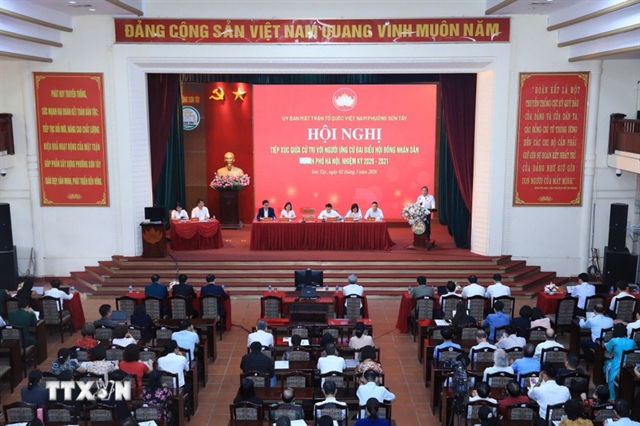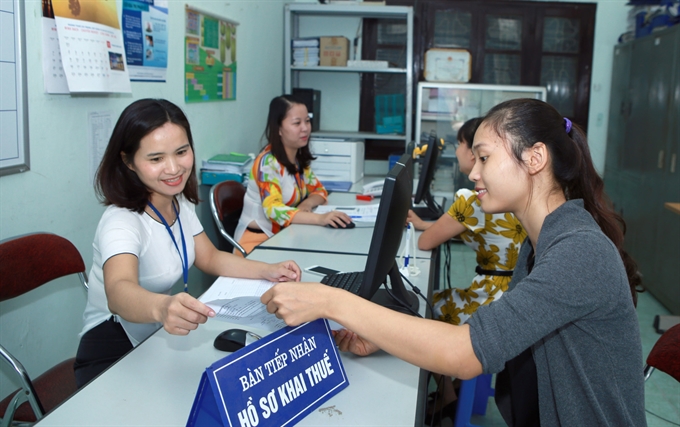 Economy
Economy

Việt Nam plans to impose a 17 per cent corporate income tax (CIT) for four years from January 1, 2017, on businesses making less than VNĐ20 billion (US$893,000) in revenue.
 |
| Officials of Đan Phượng District’s Department of Tax in Hà Nội provide instructions to tax-payers. Việt Nam is planning to issue tax incentives to help firms overcome difficulties. - VNA/VNS Photo Hoàng Hùng |
HÀ NỘI – Việt Nam plans to impose a 17 per cent corporate income tax (CIT) for four years from January 1, 2017, on businesses making less than VNĐ20 billion (US$893,000) in revenue.
The current tax rate is 20 per cent.
This is one of the tax incentives included in the National Assembly’s draft resolution on tax measures to help businesses overcome difficulties and promote the development of the business community.
The finance ministry in its proposal about tax incentives submitted to the Government said offering a 17 per cent CIT to small- and medium-sized enterprises (SMEs), equal to the preferential tax rate imposed on new projects located in areas of socio-economic difficulties, aimed to enable SMEs to accumulate capital for investment and business expansion and for improving competitiveness.
“Assisting SMEs is critical, given their irreplaceable role in economic development and social stability,” the ministry said, adding that tax policy was a common tool to promote the development of SMEs across the world.
The ministry said the tax reduction would not have a significant impact on the State’s budget collection as SMEs’ tax contribution to the budget was a modest one.
Based on the figures of the General Statistics Office in the past two years, the finance ministry estimated that the budget collection would fall by about VNĐ473 billion if the 17 per cent CIT rate was implemented on businesses making less than VNĐ20 billion revenue, which accounted for 86.2 per cent of all firms in Việt Nam.
Although the draft law on supporting SMEs by the planning and investment ministry defines SMEs as those making less than VNĐ100 billion in revenue, the finance ministry said CIT incentives should be given to those making less than VNĐ20 billion in revenue to avoid significant decrease in budget collection.
It estimated that budget collection could drop by VNĐ1.5 trillion if the 17-per-cent CIT was applied on businesses making less than VNĐ100 billion in revenue.
In addition, tax incentives must target those who were really in need of support, the ministry said, adding that the smaller the scale of business, the more vulnerable they were to shocks of the economy, business environment and international integration.
The draft resolution also proposed a 17 per cent CIT should be applied on start-ups during the 2017-20 period to fuel a boom of start-ups in Việt Nam, which was at a nascent stage in the past few years. The finance ministry said there should be early promulgation of criteria to categorise a business as a start-up.
Tax incentives would also be given to information and technology projects, including tax exemption for four years and 50 per cent tax reduction for the following nine years, to enhance competitiveness of the software industry.
The ministry plans to clear tax debts totalling VNĐ8 trillion of tax payers whose firms were already dissolved or went bankrupt before January 1, 2014.
There were more than 500,000 businesses in Việt Nam, with an average 10 per cent of them being dissolved or going bankrupt every year.
The resolution is expected to be passed at the second meeting of the 14th National Assembly and come into force from the beginning of 2017. - VNS




